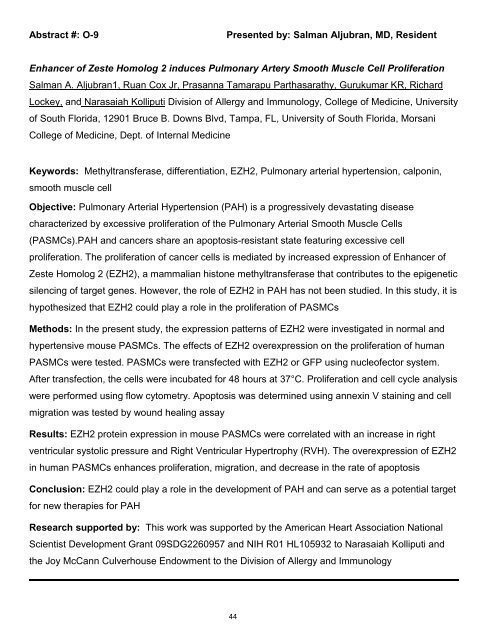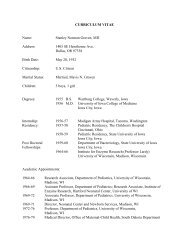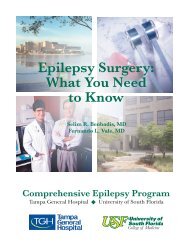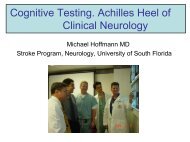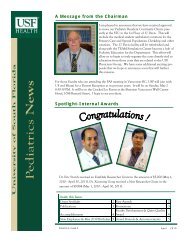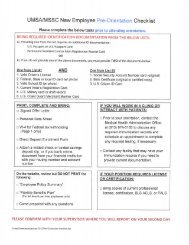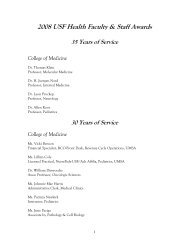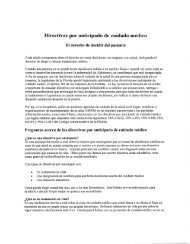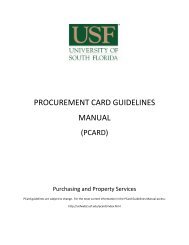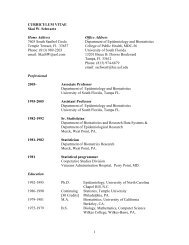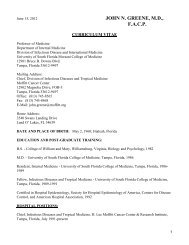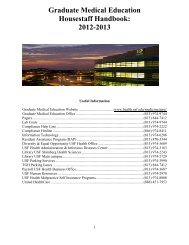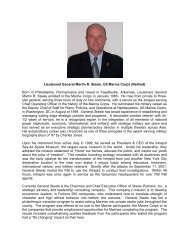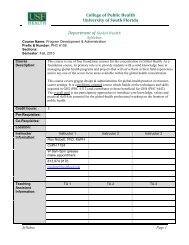2012 USF Health Research Day Virtual Book
2012 USF Health Research Day Virtual Book
2012 USF Health Research Day Virtual Book
You also want an ePaper? Increase the reach of your titles
YUMPU automatically turns print PDFs into web optimized ePapers that Google loves.
Abstract #: O-9 Presented by: Salman Aljubran, MD, Resident<br />
Enhancer of Zeste Homolog 2 induces Pulmonary Artery Smooth Muscle Cell Proliferation<br />
Salman A. Aljubran1, Ruan Cox Jr, Prasanna Tamarapu Parthasarathy, Gurukumar KR, Richard<br />
Lockey, and Narasaiah Kolliputi Division of Allergy and Immunology, College of Medicine, University<br />
of South Florida, 12901 Bruce B. Downs Blvd, Tampa, FL, University of South Florida, Morsani<br />
College of Medicine, Dept. of Internal Medicine<br />
Keywords: Methyltransferase, differentiation, EZH2, Pulmonary arterial hypertension, calponin,<br />
smooth muscle cell<br />
Objective: Pulmonary Arterial Hypertension (PAH) is a progressively devastating disease<br />
characterized by excessive proliferation of the Pulmonary Arterial Smooth Muscle Cells<br />
(PASMCs).PAH and cancers share an apoptosis-resistant state featuring excessive cell<br />
proliferation. The proliferation of cancer cells is mediated by increased expression of Enhancer of<br />
Zeste Homolog 2 (EZH2), a mammalian histone methyltransferase that contributes to the epigenetic<br />
silencing of target genes. However, the role of EZH2 in PAH has not been studied. In this study, it is<br />
hypothesized that EZH2 could play a role in the proliferation of PASMCs<br />
Methods: In the present study, the expression patterns of EZH2 were investigated in normal and<br />
hypertensive mouse PASMCs. The effects of EZH2 overexpression on the proliferation of human<br />
PASMCs were tested. PASMCs were transfected with EZH2 or GFP using nucleofector system.<br />
After transfection, the cells were incubated for 48 hours at 37°C. Proliferation and cell cycle analysis<br />
were performed using flow cytometry. Apoptosis was determined using annexin V staining and cell<br />
migration was tested by wound healing assay<br />
Results: EZH2 protein expression in mouse PASMCs were correlated with an increase in right<br />
ventricular systolic pressure and Right Ventricular Hypertrophy (RVH). The overexpression of EZH2<br />
in human PASMCs enhances proliferation, migration, and decrease in the rate of apoptosis<br />
Conclusion: EZH2 could play a role in the development of PAH and can serve as a potential target<br />
for new therapies for PAH<br />
<strong>Research</strong> supported by: This work was supported by the American Heart Association National<br />
Scientist Development Grant 09SDG2260957 and NIH R01 HL105932 to Narasaiah Kolliputi and<br />
the Joy McCann Culverhouse Endowment to the Division of Allergy and Immunology<br />
44


